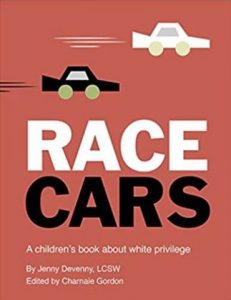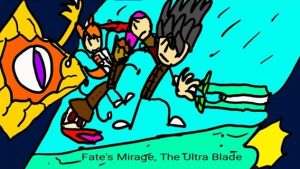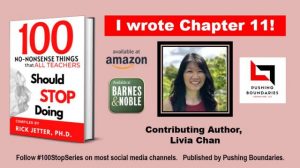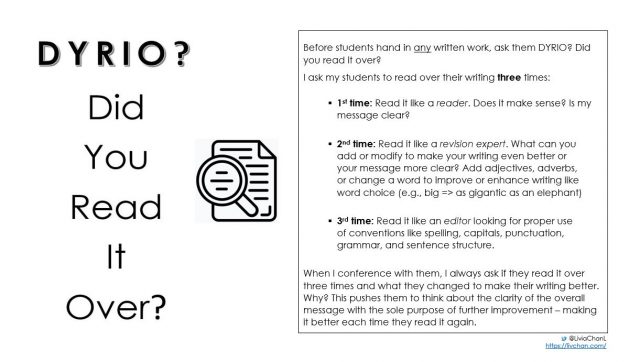Update from May 31 to June 4
Dear Division 6 families,
What a wonderful week of learning! Students have been investigating whether chocolate is a natural resource. Yes, you read it correctly chocolate! Students began their inquiry with background knowledge and understanding the importance of referencing and citations when researching. We took a closer look at cocoa beans as a natural resource. Students participated in guided group work that investigated how the production of cocoa beans contributed to the economy. Students learned about working conditions in first and third world countries, fair trade, and direct trade. They particularly enjoyed their taste testing homework. Completion of this activity allowed them to participate in an interactive zoom call with the owner of Truffle Pig. This was such a powerful activity that had students asking thoughtful questions. Over the past few weeks with the support of Mrs. Papapanagioutou and myself, the inquiry process led them to the question: What are the pros and cons of cocoa beans as a natural resource? I am so proud of the research that has taken place thus far and there is more to come! Next, we look at how media is connected to our findings. – Mrs. Paulich
To echo Mrs. Paulich, it has been a great week of learning! I feel like I say this every week but as I reflect at the end of every week, I can’t help but feel proud of their accomplishments and learning!
 This week, we had a deep conversation about the Tk’emlúps te Secwépemc Kamloops Indian Band Residential School where they detected the remains of 215 children. We also read the book Race Cars. From Amazon:
This week, we had a deep conversation about the Tk’emlúps te Secwépemc Kamloops Indian Band Residential School where they detected the remains of 215 children. We also read the book Race Cars. From Amazon:
Race Cars is a children’s book about white privilege created to help parents and educators facilitate tough conversations about race, privilege, and oppression.
Written by a clinical social worker and child therapist with experience in anti-bias training and edited by a diversity expert, Race Cars tells the story of 2 best friends, a white car and a black car, that have different experiences and face different rules while entering the same race.
Students then had an opportunity to do a free-write to unpack their thoughts and feelings about the news. Journalling is a great form of writing to sort through emotions and events that are hard for us to understand.
Speeches
This week, we continued working on our speeches. Click here for the single-point rubric we have been using all year for personal writing. The lessons and tips to help improve our writing:
- One thing I noticed was that some students started to write one very long paragraph with many different ideas. Instead, break down ideas into separate paragraphs. One paragraph = one idea to dive into. Then dive into “magnifying glass” writing where you lean into the details by adding reasons, explanations, and examples. Here, you may also include a story. See next tip.
- Tell your story: It’s important to add personal stories to help your audience make connections. Add stories that evoke emotions or helps them understand your point better.
- Your opening sentence should introduce the audience to the topic of the paragraph. End your paragraph by restating your opening sentence. We will dive further into closing sentences next week.
- Know your central theme. Aim for paragraphs to point back to your central theme. It’s like a flagpole or target that you want to make sure you’re always headed towards. Your paragraphs should help your audience better understand your main author’s message.
- To spark your audience to think. Feel free to insert a question here and there to inspire critical thinking or reflection but don’t overuse it!
- Every time you sit down to write again, re-read everything you wrote first before you continue writing. This refreshes your memory as to what you already wrote. Read it over for different purposes. They were reminded of DYRIO (click image to view PDF):
As you support your child at home with their speeches, please review these tips. At any point, should you have any questions, please email me! I am happy to help!
Speeches are to be a minimum of 3 minutes and a maximum of 5 minutes. Next week, we will co-construct our criteria that will be specific to the delivery of these speeches. It will be similar to but not exactly the same as the single point rubric for our Passion Projects.
Passion Project presentations
 We celebrated many things this week during our Passion Projects! Oscar and Kingston collaboratively presented on the video game named Battle Cats and Quinson talked about the history of video games. Both created a Kahoot game that all enjoyed! Vienna worked hard on her presentation about Italy. Gabriella and Iman came all the way from Australia to teach us about Quokkas; they had a creative idea to have me introduce them as experts from Australia and had the kids play a quiz game as review of the facts. Olivia H. enthusiastically shared How to Read the Body Language of a Dog. Maya presented an informative on Snow Leopards. Dante shared so many facts about Minecraft.
We celebrated many things this week during our Passion Projects! Oscar and Kingston collaboratively presented on the video game named Battle Cats and Quinson talked about the history of video games. Both created a Kahoot game that all enjoyed! Vienna worked hard on her presentation about Italy. Gabriella and Iman came all the way from Australia to teach us about Quokkas; they had a creative idea to have me introduce them as experts from Australia and had the kids play a quiz game as review of the facts. Olivia H. enthusiastically shared How to Read the Body Language of a Dog. Maya presented an informative on Snow Leopards. Dante shared so many facts about Minecraft.
NOTE: All presenters brought home their single-point rubric assessments. Please sign and return to school. Thank you!
Oscar’s book was officially released! It is titled Fate’s Mirage, The Ultra Blade. Oscar has worked on his story since the beginning of the year. Great tenacity and perseverance. He wrote a five chapter story that classmates excitedly took turns reading to the class! I am so grateful to Oscar and his mom, Jen, who made a copy for me to keep and included me in his Acknowledgements, thank you! One thing I complimented him on what his ability to effectively use dialogue to move the story along and help us get to know the characters better. Oscar had a great blend of dialogue between characters and then a paragraph that explained what was happening. He did this throughout the story so I wanted to point out the effectiveness of this. Then Oscar shared that this was something his mom taught him! Jen is a talented writer who has published many of her own books so I thought it was so cool that we were learning how to become better writers through Oscar’s work with the support of his mom. Thank you, Jen!
 Speaking of Passion Projects, one of my passion projects is writing just like Oscar and his mom! I am now a contributing author to a book called 100 No-Nonsense Things that Teachers Should STOP Doing. It was released three weeks ago. I wrote a chapter called Stop Boredom at All Costs and had the great privilege to talk about it on the Pushing Boundaries podcast. This is the second time my writing has been featured in a book. I am currently working on writing my own book with a couple of principals in the US. We signed a book contract a few months ago! It’ll be my summer passion project!
Speaking of Passion Projects, one of my passion projects is writing just like Oscar and his mom! I am now a contributing author to a book called 100 No-Nonsense Things that Teachers Should STOP Doing. It was released three weeks ago. I wrote a chapter called Stop Boredom at All Costs and had the great privilege to talk about it on the Pushing Boundaries podcast. This is the second time my writing has been featured in a book. I am currently working on writing my own book with a couple of principals in the US. We signed a book contract a few months ago! It’ll be my summer passion project!
Mathematicians
This past week, students finished their patterns book using Book Creator, an app on the iPad. They had fun testing out whether they wrote their pattern description correctly. They had to describe it to a partner using only words to see if their partner can replicate it without seeing the pattern. Next week, we will begin learning about quadrilaterals.
Anyone who still needs extra review and explanations about long division, please reach out. I am happy to set up a Zoom call to work with your child.
Self-assessment for the year
Students were assigned a self-assessment to complete in Teams. If your child did not finish, it was assigned for homework to be completed this weekend. Sorry, it was not recorded in their planners. Please remind them to work on it. Thank you!
We are always so grateful for your continued support at home. We are nearing the end but not slowing down. As I preach to the kids often, I equate the end of work time and learning time to the same feelings as the end of a marathon. While I’ve never run one, I can imagine how exhausted people may feel or at least how I would feel! It is in these moments that I push them outside of their comfort zone to challenge themselves to push on and to finish off strong. We will continue to do that until the end.
Gratefully, Ms. Chan and Mrs. Paulich
